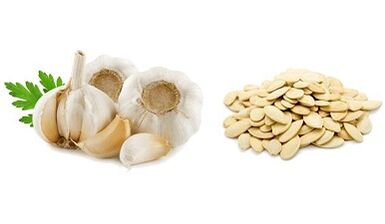Whether you like it or not, parasites live inside a person.Some of them are safe, others cause serious health problems.Parasites in the human body are small invaders that are invisible to the eye but slowly disrupt digestion and other functions.How to find out if there are helminths in the intestines and what to do with them?
Intestinal parasites
They can occur in every living thing.These organisms invade the host's body, multiply rapidly, and live on it.When they colonize in the human intestine, they disrupt the ability to process food normally, literally stealing useful nutrients and preventing the absorption of vitamins and minerals.
The waste products of worms destroy intestinal flora, weaken immunity and can cause bacterial infections and malfunction of other body systems.Common multicellular parasites include tapeworms, roundworms and pinworms.Single-celled parasites are Cryptosporidium and Giardia (Giardia).
How parasites enter the body
Penetration routes of helminths:
- contaminated water or food;
- poorly washed fruits or vegetables;
- undercooked food, undercooked meat, fish, violation of hygiene rules during preparation;
- after contact with animals and their waste products;
- If hygiene is not observed, infection can occur through sexual contact or through a dirty toilet seat;
- when swimming in polluted waters.
How to find out if there are parasites in the intestines
Most diseases caused by parasites go unnoticed.The consequences of infection are not immediately noticeable and the symptoms of a helminthic invasion can be confused with flu or food poisoning.You may not know about the existence of worms inside you for years.If parasites are not detected in time, they can cause irreparable damage.
Characteristic symptoms of an intestinal worm infection:
- cramps, stomach pain;
- nausea, stomach upset, vomiting;
- Heat;
- dehydration;
- increased flatulence, diarrhea, or constipation;
- weight loss (sharp decline or gradual long-term decline);
- Pain in muscles, joints, flu symptoms;
- swollen lymph nodes;
- Skin redness, itching or irritation.
These symptoms are the human body's reaction to foreign substances present in the body.Parasitic worms feed on the same substances as humans, depriving the body of important nutrients.If one or more symptoms persist for several days or weeks, it is important to seek medical attention.If diagnosed early, oral medications can help control parasites.
If the infection is detected late, injuries to internal organs can occur.Lack of timely treatment has serious consequences, in some cases tumors develop.In children, advanced forms of helminthiasis are associated with delayed physical and mental development.
Cleansing the digestive system

To get rid of parasites in the intestines, detoxification or detoxification is recommended.The procedure can only be carried out after consulting a doctor.Deworming is not recommended if you have liver, gallbladder or pancreatic diseases.
Herbal remedies - honey, garlic, onions, sunflower and pumpkin seeds - help fight infections.Herbal decoctions have the ability to cleanse the body.They may only be used after consulting a specialist.You shouldn't self-medicate.
Common folk remedies for worms:
- sage.The grass reduces the production of tapeworm eggs and pinworm eggs.
- thyme.Contains eugenol and thymol - substances that repel helminths.
- mugwort.The bitterness of the herb can counteract parasites, fungi and viruses.
- Black walnut shell.It is rich in juglone, a natural antibiotic used to prevent worms.The compound fights parasites that attack the eyes, lungs and brain.
After cleansing the body of helminths, it is necessary to increase the level of enzymes.To do this, you can use natural dietary supplements, bifidobacteria.You can restore the body after getting rid of parasites by following a diet and preventing the appearance of future helminths.
prevention
Maintaining personal hygiene (washing hands after walking, working in the garden, after using the toilet, before eating) helps reduce the risk of infection.Be careful with raw fish or meat, buy it only in authorized places, carry out thorough processing and cook or fry it for the recommended time.Fruit, vegetables or berries must be washed and scalded with boiling water.





























